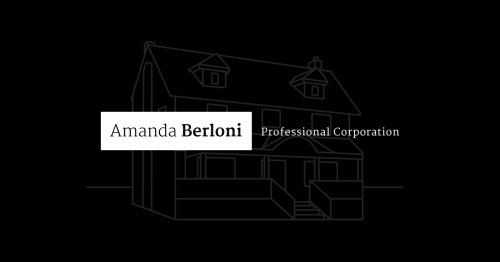Best Health Care Lawyers in Greater Sudbury
Share your needs with us, get contacted by law firms.
Free. Takes 2 min.
List of the best lawyers in Greater Sudbury, Canada
About Health Care Law in Greater Sudbury, Canada
Health Care Law in Greater Sudbury, Ontario, addresses the wide range of legal issues concerning the delivery, accessibility, and governance of health care services in the region. Greater Sudbury is part of Ontario’s single-payer, publicly funded health care system, administered by the provincial government. The city is served by Health Sciences North and a network of clinics, long-term care facilities, and community-based services. Legal matters in this field may relate to patient rights, practitioner regulation, medical negligence, privacy, mental health, consent, or insurance issues.
Why You May Need a Lawyer
While many health care interactions are routine, certain situations call for expert legal advice or representation. You may require a health care lawyer in Greater Sudbury if you:
- Experience medical malpractice or negligence by a health care provider
- Have difficulty obtaining or understanding your medical records
- Face challenges related to capacity, consent, or substitute decision-making (e.g., Power of Attorney for Personal Care issues)
- Require advocacy related to access to health services or insurance disputes, including OHIP coverage
- Need assistance navigating mental health law or involuntary admission processes
- Are dealing with end-of-life decisions or advanced care planning
- Believe your privacy rights or health information has been improperly handled
- Are a health professional facing regulatory or disciplinary action
- Manage a dispute with a health care provider, facility, or long-term care home
- Are a caregiver or family member and need advice on your legal rights
Local Laws Overview
Health care in Greater Sudbury is primarily regulated by Ontario provincial law, but federal legislation, such as the Canada Health Act, also plays a role. Some of the key legal statutes and concepts that may apply are:
- Health Care Consent Act (Ontario): Governs how and when health care providers must obtain consent from patients.
- Personal Health Information Protection Act (PHIPA): Sets the rules for the collection, use, and disclosure of personal health information by health information custodians.
- Regulated Health Professions Act (Ontario): Oversees licensing and discipline of doctors, nurses, and other practitioners.
- Mental Health Act (Ontario): Addresses treatment, rights, and involuntary admission in mental health settings.
- Long-Term Care Homes Act (Ontario): Regulates long-term care home operations and residents' rights.
- Civil law concepts: Such as negligence, consent, and capacity, frequently apply in health care litigation.
- Provincial and federal programs: OHIP eligibility, medical assistance in dying (MAID), and drug coverage programs.
Frequently Asked Questions
What should I do if I believe I received improper or negligent medical care?
If you suspect medical malpractice, document your experience, obtain your complete medical record, and consult a lawyer experienced in health care law. Timeliness is important, as there may be deadlines for making a claim.
Can I access my own medical records? How?
Yes. Ontario law gives you the right to access your own health care records, subject to limited exceptions. Submit a written request directly to the health care facility or provider where you were treated.
Who can make health care decisions if I am unable?
If you cannot make decisions yourself, a substitute decision-maker may be appointed-often your designated Power of Attorney for Personal Care, another family member in a prescribed order, or a legally appointed guardian.
What privacy rights do I have regarding my health information?
Your personal health information is highly protected under the Personal Health Information Protection Act (PHIPA). Health providers must obtain your consent to share your information, subject to certain exceptions outlined in the law.
What options exist if I have a dispute with a health care provider or institution?
You can raise concerns with the provider directly, contact patient relations at the institution, use an ombudsman or regulatory college, or seek legal advice on formal complaints or litigation.
How do I know if I’m eligible for provincial health coverage (OHIP)?
Residents of Ontario who meet criteria (such as citizenship, residency, and physical presence) are generally eligible for OHIP. Refusals or disputes can be appealed, and a lawyer may assist if your case is complex.
What should I do if I feel someone in a long-term care home is being mistreated?
Report your concerns to the long-term care home, the Ministry of Long-Term Care, or contact the Long-Term Care ACTION Line. In urgent cases, call the police or seek legal counsel.
How can I plan ahead for health decisions if I became incapable?
It is wise to prepare a Power of Attorney for Personal Care and discuss your wishes with trusted individuals. Legal professionals can assist in creating these documents properly.
What are my rights if I or a loved one is admitted involuntarily for mental health treatment?
Ontario’s Mental Health Act provides specific rights and procedures for involuntary admissions, including review board hearings and access to legal support. Hospitals must provide information on your rights.
Where can health professionals seek legal support for regulatory matters?
Health professionals can consult their regulatory college, union, or seek independent legal representation during regulatory, disciplinary, or employment proceedings.
Additional Resources
Several organizations and government bodies can provide support or information related to health care law in Greater Sudbury, including:
- Sudbury Community Legal Clinic - guidance on certain health-related legal issues
- Ontario Ministry of Health - public health advice and OHIP inquiries
- Health Sciences North Patient Relations - for concerns about local hospital services
- Office of the Ontario Ombudsman - complaints about public sector and health care institutions
- Regulatory colleges - e.g., College of Physicians and Surgeons of Ontario, College of Nurses of Ontario, for complaints or guidance involving practitioners
- Mental Health Legal Advocacy organizations for mental health-related cases
- Long-Term Care ACTION Line - complaints about long-term care homes
Next Steps
If you require legal advice or assistance concerning health care in Greater Sudbury:
- Identify and document your legal concern, including all pertinent details and relevant documents.
- Contact a qualified health care lawyer or a local legal clinic for an initial consultation.
- If urgent, such as cases of imminent harm or privacy breaches, reach out immediately to regulatory bodies or law enforcement if necessary.
- Be prepared to follow up with supporting documents, witness statements, or further information as your lawyer or advisor requests.
- Consider accessing additional resources listed above for further guidance and support.
Taking early action helps protect your rights and ensures the best possible legal outcomes.
Lawzana helps you find the best lawyers and law firms in Greater Sudbury through a curated and pre-screened list of qualified legal professionals. Our platform offers rankings and detailed profiles of attorneys and law firms, allowing you to compare based on practice areas, including Health Care, experience, and client feedback.
Each profile includes a description of the firm's areas of practice, client reviews, team members and partners, year of establishment, spoken languages, office locations, contact information, social media presence, and any published articles or resources. Most firms on our platform speak English and are experienced in both local and international legal matters.
Get a quote from top-rated law firms in Greater Sudbury, Canada — quickly, securely, and without unnecessary hassle.
Disclaimer:
The information provided on this page is for general informational purposes only and does not constitute legal advice. While we strive to ensure the accuracy and relevance of the content, legal information may change over time, and interpretations of the law can vary. You should always consult with a qualified legal professional for advice specific to your situation.
We disclaim all liability for actions taken or not taken based on the content of this page. If you believe any information is incorrect or outdated, please contact us, and we will review and update it where appropriate.










